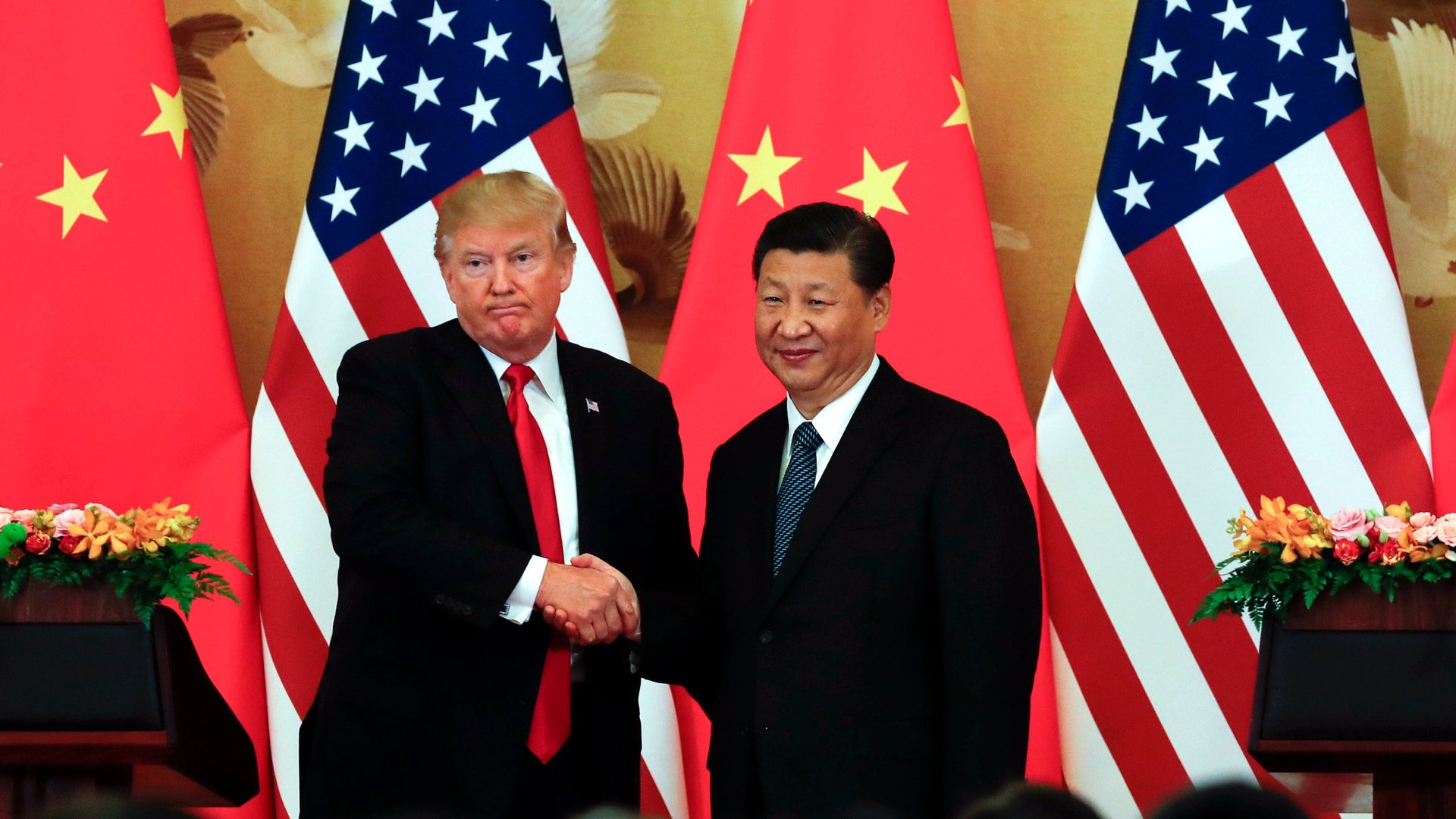Did Trump blink on China to help ZTE, or his own business?
Donald Trump is already handing out concessions to China on trade rules, and the big question is why.


Donald Trump is already handing out concessions to China on trade rules, and the big question is why.
Chinese electronics manufacturer ZTE is at the center of burgeoning trade conflict as Trump tries to close the US trade deficit with China (which isn’t actually a problem). ZTE is near bankruptcy because the Trump administration has forbidden US companies to sell it vital components after it was caught red-handed violating international sanctions in Iran. It’s got a bit of a rough history.
Then, Trump changed course, announcing “too many jobs in China lost.” He promised to fix the problem as part of a larger trade deal and for the sake of his personal relationship with Chinese strongman Xi Jingping.
This baffled observers of all stripes—and of course, directly contradicts the US position articulated by commerce secretary Wilbur Ross, who says the ban on ZTE sales was an independent law enforcement action, not a negotiating ploy.
But it’s a ploy now because Trump said so—and the question is, did Trump get anything out of this negotiation for the American people?
The Washington Post’s Dan Drezner (who moonlights as a Tufts University professor) thinks Trump blinked. He was not prepared to exploit his leverage, and is stumbling towards any face-saving deal—even if it is just a return to the trade status-quo he has lambasted for years. The result will be a mediocre deal.
But another theory of Trump’s negotiating is that the real deal has already been made: Agence France-Presse reports that Chinese state enterprises will provide $500 million in loans to a development project in Indonesia that will include Trump-branded hotels, residences and golf courses. The project, part of China’s Belt and Road plan for infrastructure spending, stands to funnel millions of dollars into the Trump Organization, the president’s private business.
Asked if this was in violation of Trump’s promise not to enter new foreign deals as president, the White House directed reporters to the Trump Organization. It’s not the only time Trump has apparently broken this promise: The Trump Organization has a contract with Chinese companies at a project in Dubai. China also granted Trump a portfolio of valuable trademarks shortly after he was elected.
When taking office, Trump did not divest himself of his company, as other presidents have done with their financial assets upon election. Instead, he passed control of the organization to his sons, and numerous reports show that he remains involved with the business. Trump also faces a federal lawsuit alleging that money he receives from foreign nationals at his hotels violates the “emoluments” cause of the constitution, which forbids Americans in public office from accepting payments from a foreign state.
And of course, Trump has still not released his tax returns, raising questions about what other businesses he may be trying to hide from public view. With all the ambiguity, it’s difficult to understand who the president is negotiating for when his team sits down with a Chinese trade delegation this week.
“You’re asking about a private organization’s dealings that may have to do with a foreign government,” White House deputy press secretary Raj Shah said yesterday in response to questions about the Indonesia deal. “That’s not something that I can speak to.”